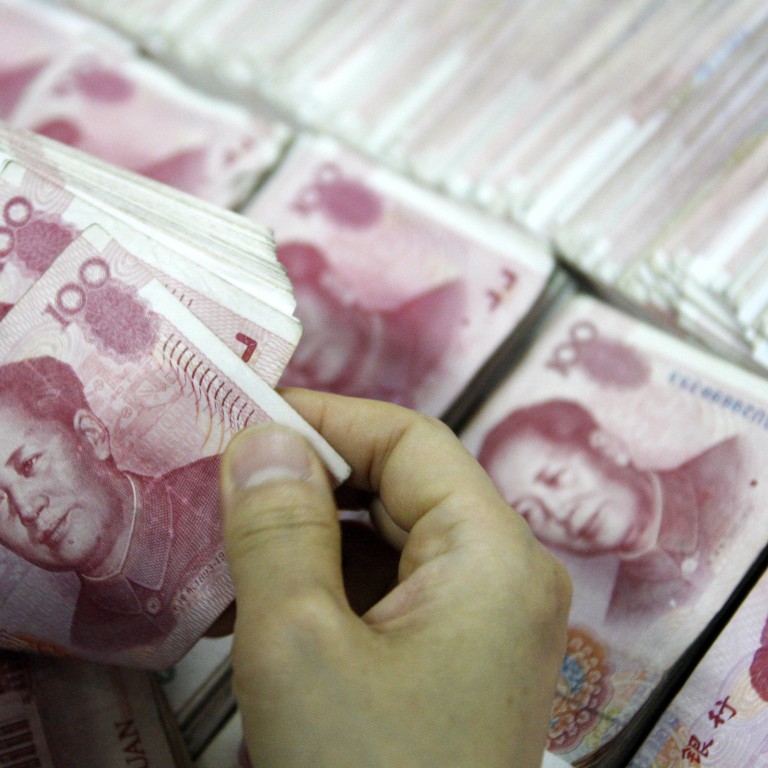
Update | Yuan rebounds but investors head for the exits
Worrying signs of capital outflow as interbank rates shoot up following shock devaluation
The yuan strengthened yesterday for the first time in four days after strong policy support by the central bank, but a spike in interbank rates suggests capital outflow following the shock devaluation continues unabated.
The yuan halted a three-day slide after the People's Bank of China yesterday raised its reference rate for the first time since Tuesday's devaluation and promised intervention in the event of extreme swings.
Onshore yuan gained 0.11 per cent against the US dollar while offshore yuan strengthened 0.4 per cent to 6.4378 as a result. But soaring short-term borrowing costs in the interbank markets on the mainland and in Hong Kong indicated investors were pulling out of the yuan.
The overnight Shanghai interbank offered rate (Shibor) shot up 1,380 basis points to 1.667 per cent over the past week and is now at a near four-month high. One-month Shibor jumped to 2.495 per cent, a one-week high.
The interbank rate is the rate banks charge to lend to each other. A jump in rates is an indication of liquidity crunch.
Bankers and economists said investors had been rushing out of yuan-denominated assets and were relocating to assets outside the mainland and denominated in other currencies, particularly the US dollar.
Yuan outflow is also evident in Hong Kong, where the overnight CNH (offshore yuan) Hong Kong interbank offered rate (Hibor) has jumped 13,720 basis points over the past week to 4.45 per cent - a one-month high.
In more signs of liquidity drying up, some offshore commercial banks, after lowering the time-deposit rates since April, have begun to raise rates. DBS, China Construction Bank and Standard Chartered announced increases in three-month, six-month and 12-month deposit rates on Wednesday.
Chan Ka-keung, the secretary for financial services and the treasury, yesterday said the scenario of some capital outflow from the city as a result of the devaluation should not be discounted. The city was ready to handle such a situation, he said.
"Surging funding costs reflect an outflow pressure. A depreciation outlook is causing outflow from China and Hong Kong's banking system," DBS economist Nathan Chow said. "This will last a while as the sentiment that yuan will further depreciate will sustain unless there is a dramatic policy change."
Some US$340 billion has left the mainland in the past four quarters.
HSBC economist Qu Hongbin said the outflow reflected an increase in the private sector's holdings of US dollar deposits, payment of US dollar debt and overseas direct investment.

